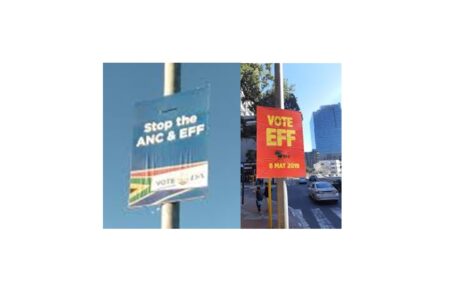The good governance brand of the Democratic Alliance (DA) is vulnerable to the compromises that come with coalition politics, the Johannesburg experience shows.
The Institute of Race Relations’ (IRR) polling in Gauteng suggests the ANC is headed for less than 50% of the provincial vote and will get somewhere in the mid to high 40s.
This means the Gauteng provincial legislature may well resemble the Johannesburg city council after the 2016 municipal elections, with the ANC being the largest party but in danger of being dislodged from government by the combined effort of all other parties.
In Johannesburg in 2016, the DA formed a coalition of all the opposition parties except the Economic Freedom Fighters (EFF), African Independent Congress (AIC) and the Patriotic Alliance (PA). The EFF supported the election of the DA candidate for the Speaker of Council and the Mayor, but refused to join a coalition voting instead on an issue by issue basis.
As a result, the DA in Johannesburg has been in an incredibly precarious position, forced to support EFF resolutions, such as a motion to council to withdraw metro police from university campuses during protests.
The coalition government has even been forced to implement ANC or EFF policy when the EFF has switched their votes to support the ANC, such as backing the development plan for the city which requires all developments to be 30% low-cost housing.
Within a few months, the relationship had come to be viewed by many in the DA city caucus as abusive. One low point was when the EFF managed to intimidate the DA leadership into unofficially banning its councillors from making speeches in Afrikaans – a decision taken by the DA leadership in the city with the intention of avoiding putting EFF co-operation at risk.
By the end of 2017, a dynamic had emerged whereby most important council decisions were made in consultation with the EFF, with the DA caucus being almost entirely side-lined by Mayor Mashaba and the DA leadership.
Evidence of a very close relationship between the DA in Johannesburg and the EFF is strongly hinted at in a recent resignation letter from former DA councillor Werner Smit, in which he alleges that the EFF was allowed to interfere in the allocation of sanitation in his ward with the assistance of the Mayor’s chief of staff. He also alleges that the DA administration, presumably at the urging of the EFF, halted evictions during illegal land occupations.
And this is only one of the three cities where the EFF and DA cooperated.
In Nelson Mandela Bay (NMB) and Tshwane, the EFF has not been afraid to call for, and in the case of NMB, carry out motions of no confidence in the DA when they felt that it would be to their advantage.
The DA has not been able to get the upper hand in any of its agreements with the EFF, and as a result it has either seriously compromised its principles in governance, or been removed from office.
With the opportunity for new coalition governments in the immediate future, the DA will need to carefully consider its position to avoid damaging its good governance brand.
Mirroring the deal with the EFF in the Gauteng provincial government is likely to produce a similar result to that in the metros. The DA risks being summarily ejected from government or becoming a puppet of the EFF.
Rather than seeking to place its political leaders in government positions, as they will surely be tempted to do, the DA should learn from the EFF and rather become a check on an ANC government in the province.
If the DA were to support an ANC premier candidate who was not completely toxic, they would place themselves in a strong bargaining position, able to exploit ideological divides in the ANC and stop the most toxic legislation and appointments going through.
They would then force the EFF either to support the ANC, which would damage their brand as the most anti-ANC party, or would push them out of the political spotlight, which would also be damaging.
For this strategy to work would require careful strategic planning and a strong will to resist the temptation of going into government.
IRR polling has shown that DA voters would prefer a DA-ANC alliance to a DA- EFF alliance, and that may be the key to stopping the bleeding of minority-voter support that the DA seems set to experience.
If the DA wants to avoid disaster, it needs to learn from its mistakes in the metros and take back the initiative from the EFF.
Nicholas Lorimer is an executive assistant at the Institute of Race Relations, and a former ward councillor for the Democratic Alliance in the City of Johannesburg.
If you like what you have just read, become a Friend of the IRR if you aren’t already one by SMSing your name to 32823 or clicking here. Each SMS costs R1.’ Terms & Conditions Apply.
The views of the writer are not necessarily the views of the IRR.

